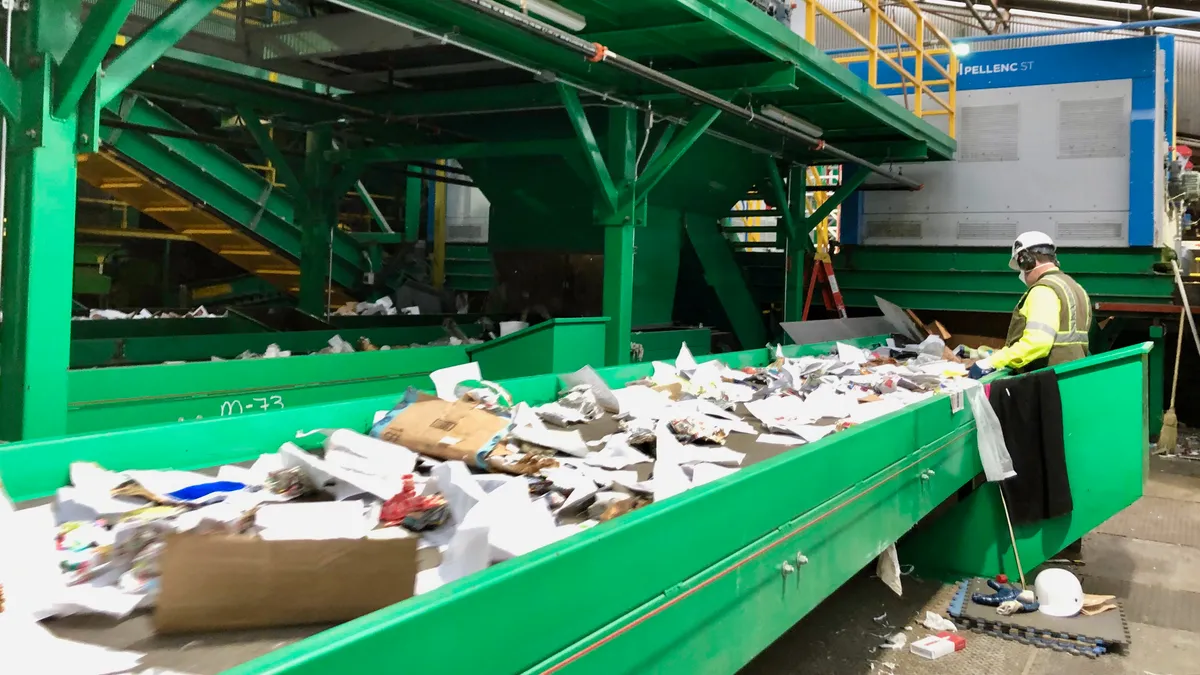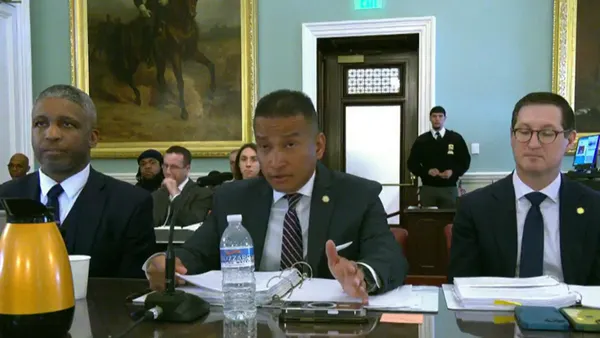UPDATE: July 17, 2019: The Institute of Scrap Recycling Industries (ISRI) has secured a preliminary injunction for its California members ahead of upcoming reporting requirements under AB 901.
ISRI cited potential costs and burdens with compliance, which CalRecycle disputed — but more importantly raised concerns about its members being covered by a law that applies to "solid waste." Because the scrap material being handled was never technically discarded and has inherent value, the association maintains AB 901 shouldn't apply. It also raised concerns about the potential ramifications of China no longer doing business with certain companies due to its ban on waste imports, as reported by Resource Recycling.
Dive Brief:
- Starting July 1, per AB 901, California will expand its waste reporting program by not only collecting more detailed waste disposal information, but — for the first time — requiring recycling and composting data.
- Waste disposal facilities, recyclers, composters, transporters and brokers will report to California Department of Resources Recycling and Recovery (CalRecycle) on the types, quantities and destinations of materials that are disposed of, sold or transferred inside or outside the state.
- This push for more accurate data gathering — part of California's measures to track progress on its 75% recycling goal by 2020 — will help the state track waste flows, better estimate recycling and composting, and lessen fraudulent reporting.
Dive Insight:
AB 901 aims to explicitly cast a lens on the state's waste and recycling streams by expanding reporting requirements to include recycling and composting operations, exporters, brokers, and transporters of recyclables and compost. It also includes enforcement language that allows CalRecycle to issue violations for non-compliance.
Prior to AB 901, very little recycling and composting was tracked at a state level — instead, California relied on a combination of voluntarily reported facility information, industry and market surveys, and internal estimates. Per the California Integrated Waste Management Act of 1989 (AB 939), only waste disposal facilities reported on the volume of materials handled and disposed, without much detail on source sectors. This left CalRecycle with an incomplete breakdown of materials being landfilled, as well as a limited estimation of recycling and composting.
Moreover, because waste disposal facilities reported to jurisdictions instead of directly to CalRecycle, jurisdictions often had few avenues to deal with landfill operators and collection fleets who violated local franchise agreements, ordinances and codes; misreported disposal tonnages; or denied access to jurisdictions to review records.
"Misreporting of disposal data may skew jurisdictional disposal up or down, so, in some cases, waste diversion rates have been both under- and over-reported," CalRecycle Public Information Officer Sydney Fong told Waste Dive.
AB 901 will change the reporting system to include more stakeholders, more data on material types and source sectors, and more enforcement authority for CalRecycle to deal with violators.
"We'll be able to analyze how many tons of certain recyclable/compostable materials are flowing through facilities and operations throughout California and can craft policies to bolster supply or demand to improve recycling," Fong noted.
Furthermore, AB 901 gives CalRecycle the authority to verify information and levy fines for late or inaccurate reporting. As described by Fong, "CalRecycle has been empowered with the authority to conduct records reviews to verify that quarterly report information submitted matches up with what was actually handled."













